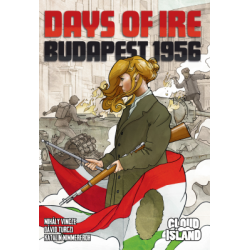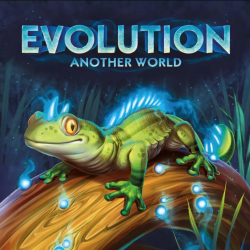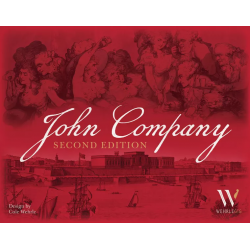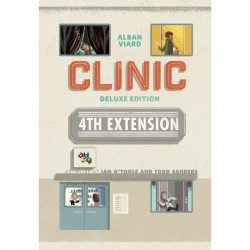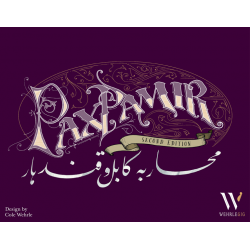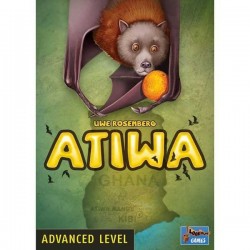No products in the cart.
Active filters
Days Of Ire: Budapest 1956
It\'s 1956, and waves of protest in Poland are once again showing cracks of the Eastern European communist bloc. Emboldened by these signs, students and intellectuals in Budapest, the Hungarian capital, organize a protest of previously unseen magnitudes. As the communist leadership sweeps in to kill the movement in its tracks a violent response is provoked, thus sparking the Revolution of the 23rd of October.
Evolution: Another World
We know a great deal about the evolution on Earth (and we hope that Evolution: New World helped you with that too). It\'s an exciting story of various creatures acquiring defensive & offensive traits to adapt to the ever-changing environment. What we don’t know is if there might be other worlds where completely different creatures dwell. Will the same laws of evolution apply there too? It\'s time to find out!
John Company: Second Edition
In John Company, players assume the roles of ambitious families attempting to use the British East India Company for personal gain. The game begins in the early eighteenth-century, when the Company has a weak foothold on the subcontinent. Over the course of the game, the Company might grow into the most powerful and insidious corporation in the world or collapse under the weight of its own ambition.
Clinic: Deluxe Edition – 4th Extension
This is the last extension for Clinic Deluxe Edition released for the non Essen fair in 2020.
Days And Nights: Red Army Miniature Pack
Days & Nights: Red Army Pack is an add-on pack that contains 28 miniatures compatible with both Days of Ire and Nights of Fire. It also contains a small deck expansion to Nights of Fire, and an additional deck allowing campaign play.
In Campaign mode you can play a game of Days of Ire followed by a game of Nights of Fire (solo, cooperative, or conflict mode up to 1v2 supported), and have the winner decided only at the end!
Pax Pamir: Second Edition
In Pax Pamir, players assume the role of nineteenth century Afghan leaders attempting to forge a new state after the collapse of the Durrani Empire. Western histories often call this period "The Great Game" because of the role played by the Europeans who attempted to use central Asia as a theater for their own rivalries. In this game, those empires are viewed strictly from the perspective of the Afghans who sought to manipulate the interloping ferengi (foreigners) for their own purposes.
Atiwa
As a family of fruit farmers, the players learn that fruit bats - once scorned and hunted as mere fruit thieves - are in fact incredibly useful animals.

